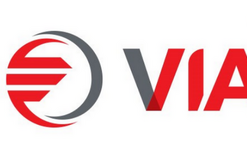Reserve Bank cautious on recovery

The Reserve Bank has held the Official Cash Rate (OCR) at 0.25 per cent in its first Monetary Policy Statement for the year but says it remains prepared to lower it if necessary.
Governor Adrian Orr says while economic activity has picked up in recent months, the outlook remains “highly uncertain” and is tipped to constrain business investment and household spending.
As a result, the Reserve Bank believes prolonged monetary stimulus is necessary and it has left open the possibility of negative interest.
The large-scale asset purchase (LSAP) programme of up to $100 billion and the Funding for Lending programme was also left unchanged in the statement on February 24.
A summary of the meeting of the Monetary Policy Committee says members agreed domestic interest rates will have to stay low to achieve the committee’s objectives.
Overall, the committee agreed “it would not change the stance of monetary policy until it had confidence that it is sustainably achieving the consumer price inflation and employment objectives”.
The committee also assessed a negative OCR and the LSAP programme against its principles for alternative monetary policy and says it is “prepared to lower the OCR to provide additional stimulus if required”.
Orr, pictured, adds: “We want to retain all optionality to provide more stimulus if it proves necessary. What might make that necessary? Continued health problems, ongoing longer-than-expected border restrictions, business confidence lagging and a lack of investment.
“There’s a long list of things to worry about and hence we want to retain the optionality, the full optionality of the suite of our tools to be prepared for any of those types of scenarios.”
He expects banks to pass more of the savings they had made on borrowing costs in the form of lower mortgage and business rates.
“Economic activity in New Zealand picked up over recent months, in line with the easing of health-related social restrictions,” Orr explains.
“Households and businesses also benefitted from significant fiscal and monetary policy support, bolstering their cash-flow and spending.”
Orr notes the Reserve Bank is keen to see business confidence and investment increase before it feels optimistic about the sustainability of the economic recovery from Covid-19.
He says while many households had taken advantage of lower interest rates in the past 10 months, the business sector had been more reluctant.
The Reserve Bank has also upgraded its baseline forecasts for the economy since its last statement in November 2020.
It predicts inflation, which is currently 1.4 per cent, to return to about the 2 per cent target in mid-2023.
The base case also assumes domestic economic activity will remain around pre-Covid-19 levels until late 2021.
Annual GDP growth is forecast to accelerate from late 2022 and peak at 3.8 per cent, while the unemployment rate is tipped to increase towards 5.2 per cent over the coming year.





